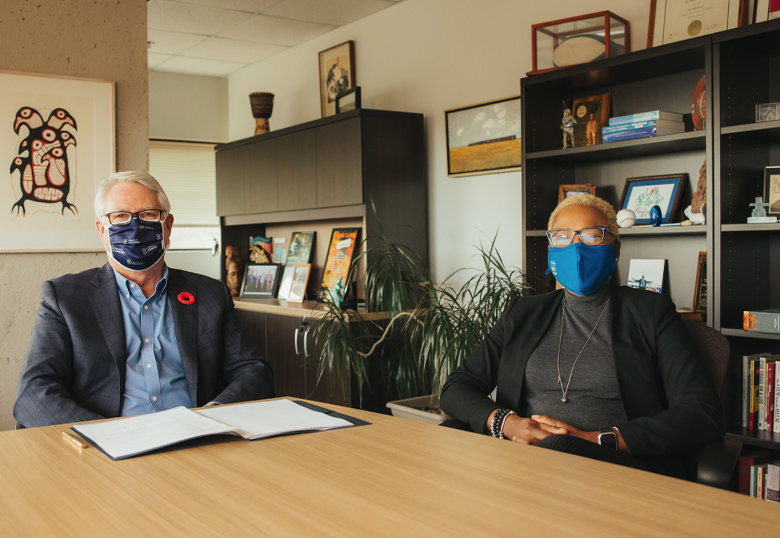The University of Lethbridge is joining today more than 40 universities and colleges from across Canada in signing the Scarborough Charter, a commitment to eliminating anti-Black racism and advancing Black inclusion in Canadian higher education.

“The Scarborough Charter represents one of the ongoing commitments and a call to action from Canadian higher education institutions to do the hard work ahead to repair and reconcile their role in historically excluding marginalized groups,” says Dr. Mike Mahon, U of L president and vice-chancellor. “By signing the Charter, the University is committed to doing our ethical part in addressing these social injustices and to creating safe, inclusive spaces for all.”
Drafted by the Inter-Institutional Advisory Committee, after a year-long collaborative process, the charter is built on four overarching principles to redress anti-Black racism and foster Black inclusion in the Canadian post-secondary sector. These principles include Black Flourishing, Inclusive Excellence, Mutuality and Accountability.
“We are committed to continue to advance equity, diversity and inclusion initiatives and address all forms of systemic racism on our campuses and in our communities,” adds Mahon. “We believe the Scarborough Charter is a useful resource and tool for our university as we work to advance a more diverse and equitable sector.”
Martha Mathurin-Moe, the University’s recently named Executive Director, Equity, Diversity and Inclusion (EDI), says post-secondary institutions are often looked upon as social leaders, but have fallen short in respect to their own systemic practices. To lead in the broader community, higher education must first address its own shortcomings, and work towards creating a better future for all.
“I think if we are truly going to do anti-racist work that is impactful and lasting, we have to be prepared to have those tough and sometimes uncomfortable conversations with one another,” says Mathurin-Moe. “The Scarborough Charter will help us have those conversations and to keep doing this important work. It also holds us accountable to ourselves as well as our counterparts across Canada that we are committed to do the work.”
She adds that while the charter focuses on anti-Blackness and Black inclusion, the U of L is looking more broadly and will ensure that this work is localized to our unique context.
“Our goal here is to address all the injustices for our Black, Indigenous and People of Color, LGBTQ2S+ and persons with disabilities,” says Mathurin-Moe. “We are committed to building inclusive excellence in our governance, research, teaching, learning and community engagement. We also recognize that this is a journey, and it’s an important move forward that can only be achieved by working together.”
To view the Scarborough Charter, follow this link: https://www.utsc.utoronto.ca/principal/scarborough-charter.
